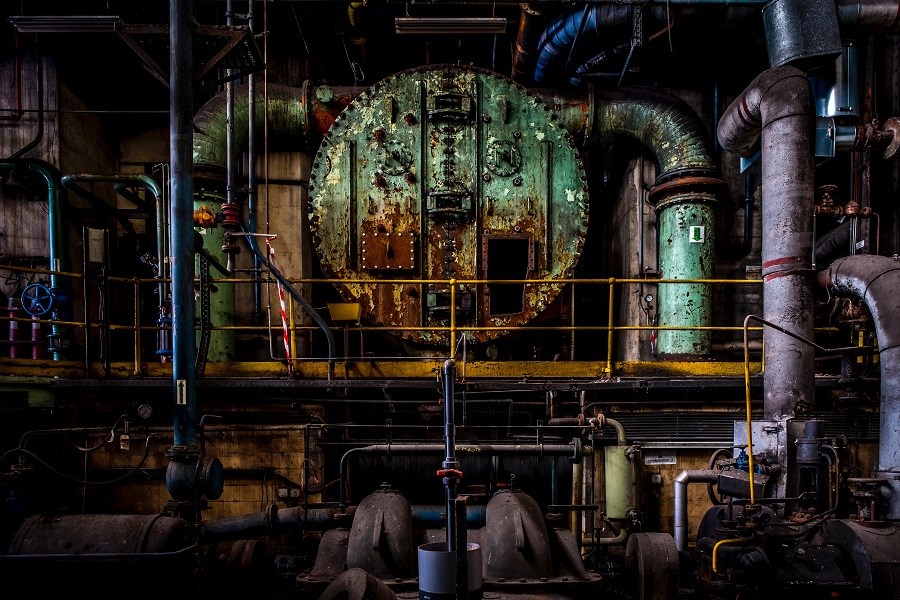
The cloud of uncertainty around the outcome of the U.S. presidential election has finally lifted as Joe Biden defeated Donald Trump to become the 46th U.S. president. This would also be the cue for skittish investors to start hunting for opportunities in sectors with a history of a post-election bump.
One of those sectors is industrials. President-elect Joe Biden has proposed US$2 trillion worth of clean energy and infrastructure spending that will support the underperforming industrial sector. Industrials is currently the best of the worst performing sectors that are in the red so far this year. The S&P 500 Industrials (Sector) has returned -0.20% for the year to date, as of Nov 05, while the USD-denominated Morningstar US Industrials has fallen 0.70%, for the same period. By contrast, the S&P has gained more than 8% year to date.
These industrial stocks stand to benefit from increased spending as laid out in the president-elect’s economic agenda. As well, given their general sensitivity to economy, a better management of the coronavirus pandemic and the resultant economic recovery over time could provide a further tailwind for these businesses.
|
L3Harris Technologies Inc |
||
|
Ticker |
||
|
Current yield: |
1.88% |
|
|
Forward P/E: |
13.89 |
|
|
Price |
US$178.66 |
|
|
Fair value: |
US$203 |
|
|
Value |
12% discount |
|
|
Moat |
Narrow |
|
|
Moat Trend |
Stable |
|
|
Star rating |
**** |
|
|
Data as of Nov 06, 2020 |
||
Defense contractor, L3Harris Technologies provides products for the command, control, communications, computers, intelligence, surveillance, and reconnaissance market. The firm also makes an assortment of avionics for defense and commercial aviation.
L3Harris Technologies resulted from the merger between L-3 Technologies, a sensor-maker that operated a decentralized business focused on inorganic growth, and the Harris Corporation, a sensor and radio manufacturer that ran a more unified business. The firm, the sixth-largest defense prime by defense sales, is implicitly a play on the defense budget, tied to a nation’s wealth and a nation’s perception of danger, says a Morningstar equity report.
Despite “substantial political uncertainty in the budget, it will be difficult to materially decrease the defense budget without sweeping political change,” says Morningstar equity analyst, Burkett Huey, who identifies “the tactical radios replacement cycle, national security satellite asset decentralization, and electronic warfare capabilities” as the three biggest growth opportunities for the firm. Narrow-moat L3Harris Technologies recently reported a strong quarterly result with improved guidance for margins, profit, and free cash flow, prompting Huey to raise the stock’s fair value to US$203, and project mid-single-digit growth rate.
| KBR Inc | ||
| Ticker | KBR | |
| Current yield: | 1.67% | |
| Forward P/E: | 11.68 | |
| Price | US$23.99 | |
| Fair value: | US$31 | |
| Value | 23% discount | |
| Moat | None | |
| Moat Trend | Stable | |
| Star rating | **** | |
| Data as of Nov 06, 2020 | ||
KBR Inc (KBR) is a global provider of technology, integrated engineering, procurement, and construction delivery, and operations and maintenance services. The company’s business comprises government solutions and technology solutions segments.
“KBR’s portfolio transformation is the culmination of the firm’s shift away from more cyclical and lower-margin end markets,” says a Morningstar equity report, noting the decision to exit from certain projects will result in a less risky and more profitable portfolio.
The government solutions segment accounted for roughly 84% of the firm’s backlog as of June 2020 (compared with 16% in 2014). “We expect the shift to long-term government contracts to result in a more stable portfolio,” asserts Morningstar equity analyst, Krzysztof Smalec, who puts the stock's fair value at US$31.
The new technology solutions segment, roughly 16% of the firm’s backlog, as of June 2020, is expected to deliver roughly US$1 billion in revenue in 2021 and generate midteens margins. The segment’s margin could be further expanded through cost reductions by roughly 100-200 basis points per year, to the high teens by 2024, says Smalec.
| Emerson Electric Co | ||
| Ticker | EMR | |
| Current yield: | 2.97% | |
| Forward P/E: | 20.33 | |
| Price | US$69.97 | |
| Fair value: | US$74 | |
| Value | Fairly valued | |
| Moat | Wide | |
| Moat Trend | Stable | |
| Star rating | *** | |
| Data as of Nov 06, 2020 | ||
Multi-industrial conglomerate Emerson Electric (EMR) operates under two business platforms: Automation Solutions, which includes process manufacturing solutions, and Commercial and Residential Solutions, which comprises climate technologies, and tools and home products. The U.S. accounts for about half of the firm’s sales.
“Emerson Electric is the undisputed powerhouse in process manufacturing on the west side of the Atlantic,” says a Morningstar equity report, noting that despite the impact of geopolitical uncertainty and COVID-19-related disruptions, “Emerson is poised for several years of positive organic growth after a slow recovery in 2020 and 2021.”
The wide-moat firm is well positioned to benefit from secular trends in the automation market, estimated to be worth US$214 billion in 2019, of which 59% is in hardware and services, 32% in control product software, and 9% standalone software. “Even as Emerson holds either first or second share in a variety of product categories, share from established firms remains somewhat fragmented (depending on the category, Emerson holds roughly mid-teens market share), suggesting a large runway for growth,” says Morningstar equity analyst, Joshua Aguilar, who recently upped the stock’s fair value from US$70 to US$74, prompted by “recent outperformance on the top line, which sets up Emerson strongly in 2021 as the economy recovers.”
| Jacobs Engineering Group Inc | ||
| Ticker | J | |
| Current yield: | .78% | |
| Forward P/E: | 16.45 | |
| Price | US$97.95 | |
| Fair value: | US$98 | |
| Value | Fairly valued | |
| Moat | None | |
| Moat Trend | Stable | |
| Star rating | *** | |
| Data as of Nov 06, 2020 | ||
Industrial behemoth, Jacobs Engineering (J) is a global provider of engineering, design, procurement, construction, and maintenance services as well as cyber engineering and security solutions. The firm’s clients include industrial, commercial, and government entities across multiple sectors including water, transportation, healthcare, technology, and chemicals.
CEO Steve Demetriou has overhauled Jacobs’ portfolio to boost recurring revenue and lower cyclicality. As part of the transformation, Jacobs acquired engineering company CH2M for US$3.3 billion, bulking up its presence in the transportation, water, nuclear, and environmental services end markets. “We like the strategic fit of the CH2M acquisition,” says a Morningstar equity report, pointing out that the deal has bolstered the firm’s nuclear business, allowing it to become a Tier 1 nuclear services provider. The deal, he adds, has also increased exposure to end markets that benefit from favourable long-term trends, such as water and transportation.
“We think that increased infrastructure spending will be necessary to replace aging infrastructure in the U.S.,” says Smalec, who recently raised the stock's fair value from US$93 to US$98.






















